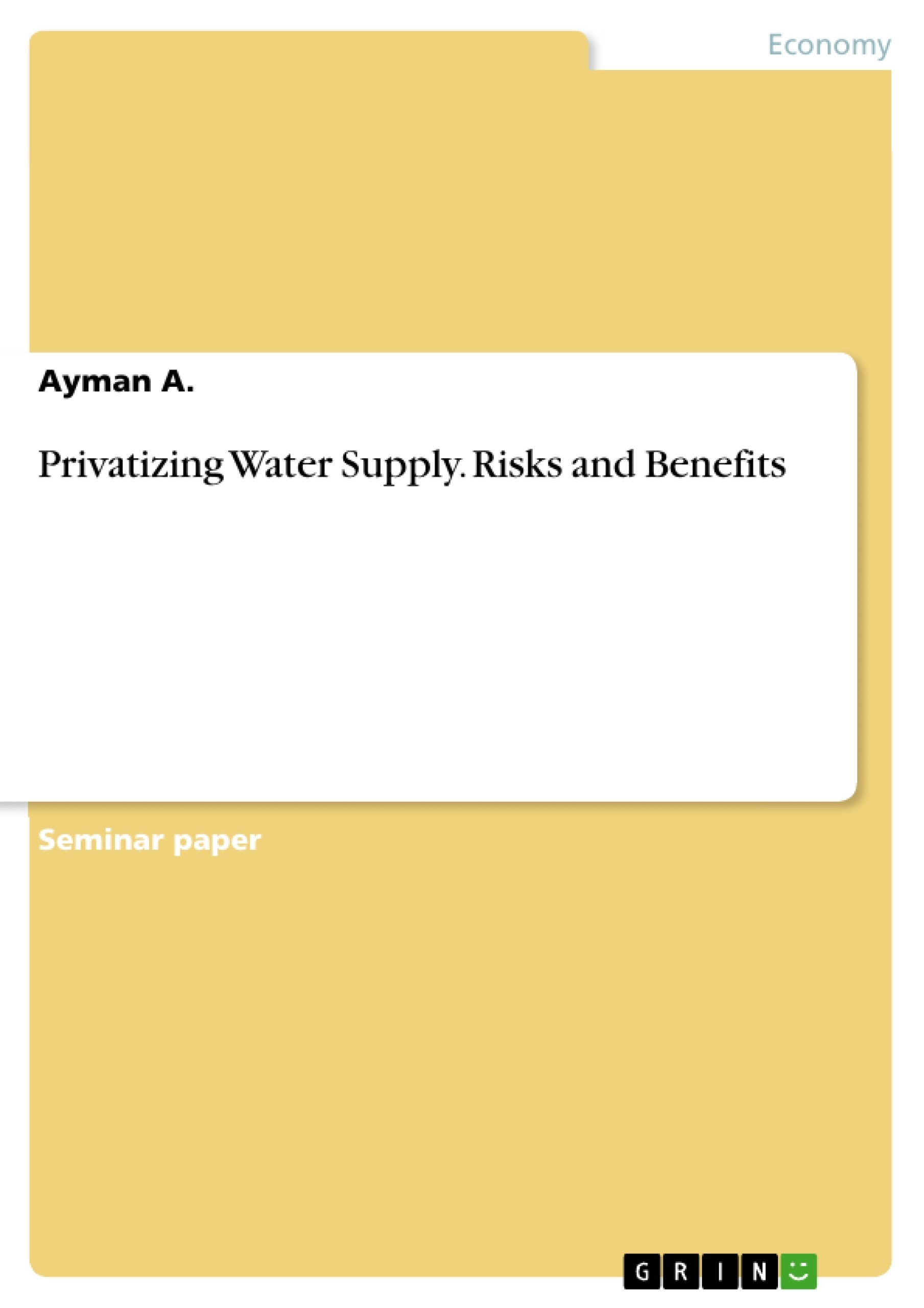This paper defines privatization of water supply along with its different types as a negative impact on the public, especially the poor people. It shows the risks and benefits of water privatization and how the private sector aims to gain profit with less accountability for the public. At the end, it results that the privatization of water supply has failed, and recommends the governments and private sectors to play an effective role for an improved access to water.
Although water is considered by most people as a natural resource, it has been lately argued that water should be treated as a good. Public Citizen’s Water for All Campaign has been devoting their power to conserve water as a natural resource with adequate access for all people over the world and stop privatizing water for commercial purposes. On the other hand, WTO and OECD are the largest trade organizations which support all types of water privatization. Most points of view see that water should not be privatized in the fact that it is a human right while others think it should be privatized for a purpose of profit.
Inhaltsverzeichnis (Table of Contents)
- Introduction
- Problem and Complications
- Scope of Work
- Privatisation and Water
- The Advent of Privatisation
- Trends in privatisation of water supply
- Actors and International Policy framework
- Risks and Benefits
- Risks
- Accountability for public and Human right to Water
- Cherry-picking service areas
- Operating Costs
- Transfer of water by countries
- Benefits
- Recommendations
- The role of the Public Sector
- The role of the private sector
- Outlook and Conclusion
Zielsetzung und Themenschwerpunkte (Objectives and Key Themes)
This paper examines the privatization of water supply, focusing on its negative impacts, particularly on disadvantaged populations. It explores the risks and benefits of water privatization, highlighting the private sector's pursuit of profit with limited accountability. The paper ultimately concludes that water privatization has failed and proposes effective roles for both governments and private sectors to improve access to water.
- The impacts of water privatization on public access to clean drinking water.
- The risks and benefits of privatization for both the public and private sectors.
- The role of international organizations and their influence on water privatization policies.
- The ethical considerations related to the privatization of a vital resource like water.
- The importance of ensuring accountability and transparency in the management of water resources.
Zusammenfassung der Kapitel (Chapter Summaries)
The Introduction highlights the critical importance of water and the growing global concern about water access. The paper discusses the challenges posed by the privatization of water systems, particularly for impoverished communities, and the need for a more equitable approach to water management.
The second chapter explores the history of water privatization and examines the trends driving this shift. It analyzes the involvement of international actors and their influence on water policy frameworks.
The third chapter delves into the risks and benefits associated with water privatization. It examines concerns regarding accountability for human rights and public access to water, the potential for selective service provision, the impact on operating costs, and the implications of water transfer between countries.
The fourth chapter proposes recommendations for improving the management of water resources. It emphasizes the crucial roles that both the public and private sectors must play in ensuring equitable access to water.
Schlüsselwörter (Keywords)
Water privatization, public access to water, human right to water, accountability, transparency, international organizations, profit, risks and benefits, public sector, private sector, water management, equitable access.
- Quote paper
- Ayman A. (Author), 2016, Privatizing Water Supply. Risks and Benefits, Munich, GRIN Verlag, https://www.grin.com/document/514855




